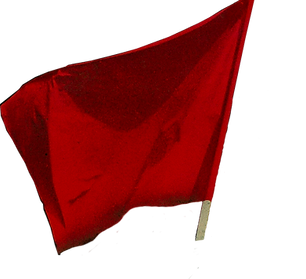Editorial: Democracy as a competitive field.
- Redaktion Die Rote Fahne
- 27. Apr. 2022
- 3 Min. Lesezeit
Aktualisiert: 17. Nov. 2023
We want to underline to our English speaking readers that this Editorial was written in the beginning of February, when the invasion of Russia in Ukraine was not yet startet. Nevertheless it is an important statement of our Editorial staff, when it comes to the situation and analyzes of this period.
Editorial: Democracy as a competitive field.
Threats of war against Russia, rearmament of the EU, corruption and side letters - just a few of the keywords in the current political debate. Now the question justifiably arises as to what the alleged “democracy" and "rule of law," which are constantly used in demarcation, actually mean and whether the defamation of the "critics" as "anti-democratic" is not merely a distraction.
The defense of a military intervention in Ukraine is presented by the Austrian foreign minister (and Austria is formally a neutral country) as a "defense of democracy". The "Western democratic community of values" must be defended against the Eastern "autocracies" and "dictatorships". But what about this alleged "democracy" that is being defended here? Or is it nothing but an empty phrase used in times of rebellion for the own population and for war ambitions in other countries? The deeper the crisis of the old system, the louder the cries of "defense of democracy". The democratic yardstick is not applied to what actually happens in the "interior" of this "democratic republic" and it is pretended on the part of the rulers and their media as if it would be a God-given eternal truth that the West is "democratic" and the East "anti-democratic", establishing the sublimity of the West over the East as it was written in the Bible. The "killer argument" - which itself is already dying!
An apt current example are the "Sideletters", i.e. a not published secret agreement of the government of 2019. Counter voices from politics and media reported immediately, that such a thing is nevertheless "normal" and also previous governments had such agreements, where post allocation and influence of the respective party is regulated. It is therefore normal, and numerous other examples testify to this, that the measuring stick is not set at all by democratic principles. Democracy, as "rule of the people", the "people as sovereign" is not normal in this democracy - because why else would secret agreements be part of the formation of government? Obviously there is no "rule of the people", no democracy for the people! Because such criteria are not used by the rulers for the alleged "democracy".
The democracy of the people, what real power of shaping the society it has, is a question of struggle, of asserting its interests. The basis of measurement is how much democracy the workers and oppressed can win in the class struggle, what they can force against the interests of the rulers. That the slogan "democracy" is used by the elites as a demarcation to imperialist opponents, ignores the main, the inner aspect of this question: Who is in power? Who determines society, production, the values created and the working class that creates them?
This month marks the 88th anniversary of February 12, 1934, the great struggle of the Austrian working class against Austrofascism. This struggle taught then, as it does today, that democracy is a competitive field and that defending and asserting workers' and people's interests in democratic and social matters faces fierce resistance from the powerful. And it also taught that democracy is not a matter of empty words, but of social conditions and acts. "The crisis consists precisely in the fact that the old is dying and the new cannot be born; in this interregnum a great variety of morbid symptoms appear." (Antonio Gramsci)






Kommentare